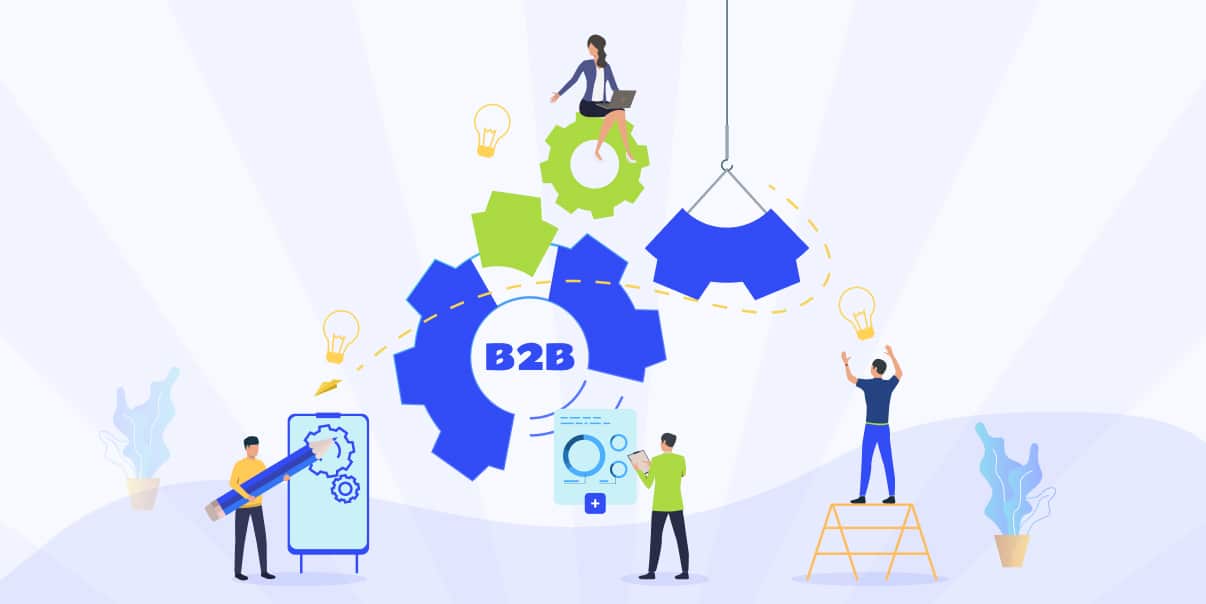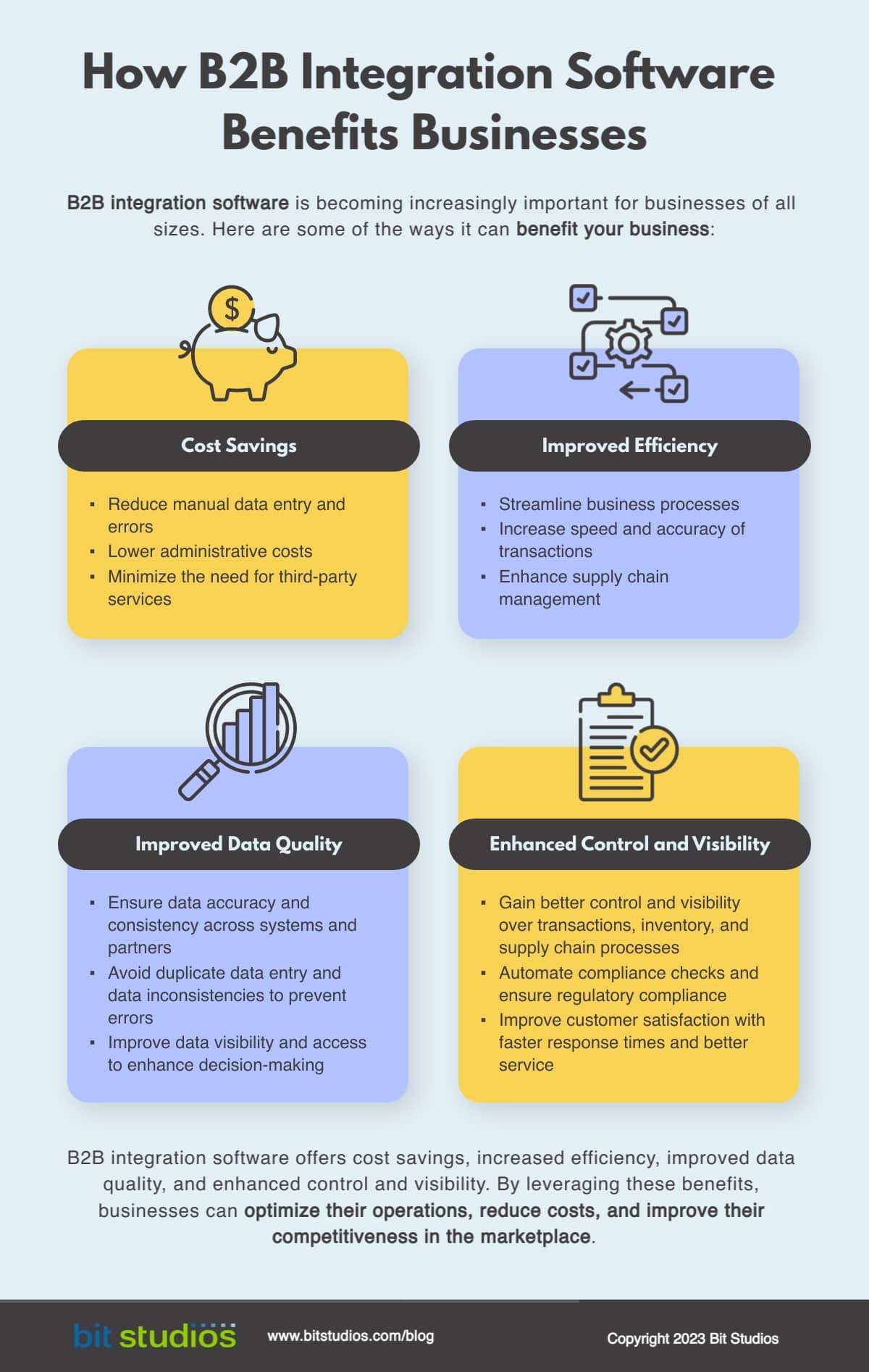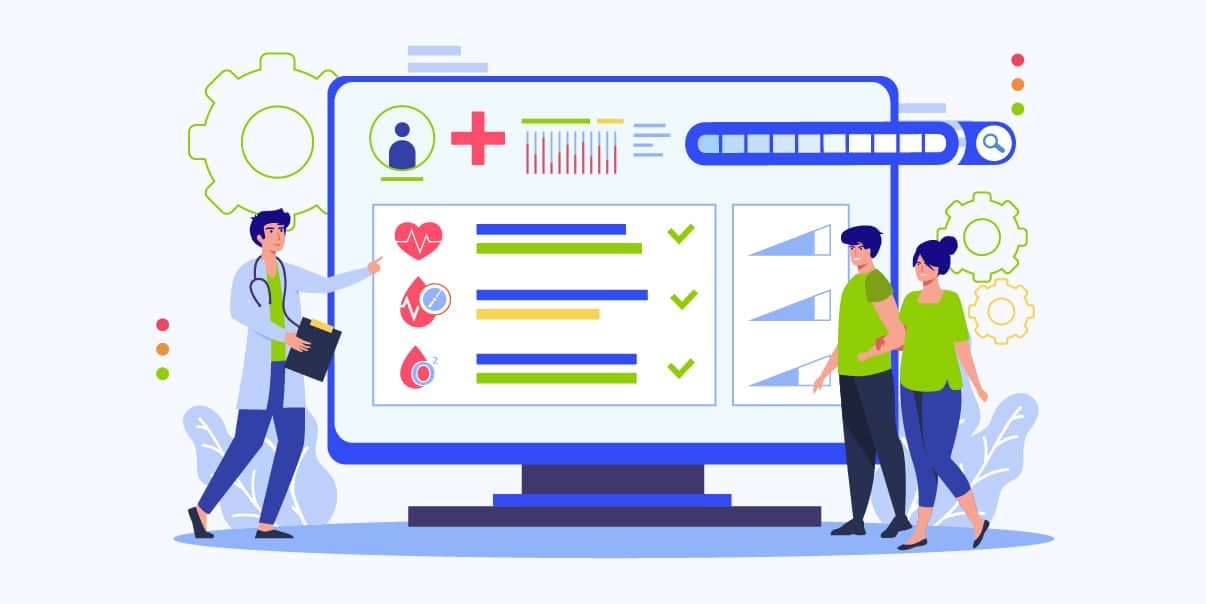A Comprehensive Guide to B2B Integration Software

Businesses often need to share information with their customers, partners, and vendors. B2B integration software makes this process easier. It helps companies automate their work and ensure their data is secure.
This guide will discuss how to use integration software. You will learn the different types of integration software and why it is vital for businesses. We will also examine the key features you should consider when choosing an integrated software solution for your business. Finally, we will provide tips on how to get the most out of your integration software solution so that you can take your business to the next level. Let’s get started!
What Is B2B Integration Software?
B2B software helps companies perform myriad essential tasks. It connects apps and data across different networks so customers can buy items quickly. This technology also allows businesses to automate sending invoices and managing customer accounts. It takes data from one system and makes it so that another network can read it while ensuring the information is secure.
Why Is B2B Integration Software Important?
Business-to-business integration software can be beneficial for businesses. It makes it easy to communicate, share information, and process orders quickly and securely. Also, B2B integration software can help enterprises save time and money and increase their revenue. With this kind of software, companies can connect with their trading partners without any trouble and make sure that all data is protected. If you have a business, B2B integration solutions could be helpful.
What Are the Types of B2B Integration?
Keeping your business connected and up-to-date is critical for success. B2B integration helps you do this by linking computer systems and apps so they can exchange information. Different types of B2B integrations work in different ways. They allow you to make your system more efficient or let you make quick decisions when choosing an integration platform. Knowing about the following types of B2B integrations can help you decide what’s best for your business:
Data Integration
Data integration is merging data from various sources into a single database or file. Data integration gives businesses a complete view of their customers, products, and operations. Also, you can perform it through various means, such as:
- Managed File Transfer Protocol (MFTP)
- Web services
- Extract-Transform-Load (ETL) tools
Data integration simplifies gathering and combining data from different systems, databases, or sources. It means several points of view are available at once, allowing more informed decision-making. Additionally, it helps you save time, reduce costs, and improve customer satisfaction.
System Integration
Integrated into this type are different systems or subsystems and their hardware. System integration includes incorporating computer systems with software applications and data from databases. Its purpose is to have them act as a single system and carry out business tasks smoothly. You can easily communicate with each other using the latest technologies. Plus, it makes extracting and sharing data between various systems easier. It simplifies processes by connecting different components within an enterprise into one system.
Process Integration
Are you looking to increase your business presence in the modern landscape? Process integration could be the way to go. It is a combination of system integrations and business process automation. Moreover, it helps your business connect with other companies and share critical data for efficiency and growth.
Process integration helps automate manual tasks, streamline workflow processes, and connect various systems. It is a coordination model that ensures you get what you need without leaving any loose ends. Automating some processes allows businesses to work efficiently and reduce costs.
Application Integration
Businesses and trading partners leverage internal and external systems like CRM or ERP systems hosted on-premise or as cloud apps to address business needs. You can achieve application integration in two ways:
1. With the Help of Data Integration
You can understand how applications communicate using application and data integrations. It allows you to exchange information, send files, and get responses between them. Application integration makes this process much more manageable.
2. By Presenting Different Business Applications as One
Companies can use unique technologies to connect various applications. This way, they can show all the apps as one app with the same display. They can also build connections between two applications and gather data entered by users on a website.
Integrated apps help you better understand important information that can help your business make money. Application integration lets you use many data formats and tools to track what happens in your company and ensure you do everything correctly.
Cross-Company Integration
Companies can work together better when they use cross-company integration. It helps them join their resources to do things faster and get the most up-to-date info. An API is like a bridge connecting different companies, allowing them to share information quickly and get the best out of what they offer. It makes it easier for businesses to learn from each other and stay ahead of the competition.
Essential Features of B2B Integration Software
When it comes to integration software, there are certain key features that you should take into consideration. Understanding these features helps determine the right fit for your business needs.
Explore some of the most critical components of integration software below:
Application Integration
When looking for B2B software, ensure it has various app integration. A B2B solution needs to integrate with several business applications. Today, many businesses use different applications, like NetSuite, SAP, and Salesforce. Thus, connecting them in a single system helps you automate your business processes.
This step ensures a faster and more secure connection between apps from other domains. As enterprises need access to disparate systems, integrating them becomes necessary. This process facilitates real-time data transfer from applications over entire operation system boundaries. It manages transport protocols optimally for server migration and system growth.
Mapping and Translation
Many businesses need to transfer information from one format to another. Integration software helps with this. It lets users visualize data fields and show the relationships between documents. With mapping and translation, businesses can quickly translate or map out data they need for their jobs. Mapping and translation make it easier to do their jobs because things are consistent, accurate, and done quickly. These are critical parts of any integration software used in today’s digital world.
Analytics and Insights
Analytics and insights provide valuable intelligence that helps organizations make better business decisions. These give companies visibility into how their systems interact with others. Also, these allow them to identify areas for improvement to maximize efficiency. With a robust analytics dashboard, B2B integration can achieve a competitive advantage.
Message Tracking and Reporting
This excellent feature can help you, your administrators, and your trading partners stay informed in real-time. It includes message tracking and reporting, meaning you can look at detailed information on one centralized dashboard. This feature also allows you to communicate easily with your connected people.
Communications Adapters
An integration solution with communications adapters can enhance the security of internet connections. Communications adapters allow computers to communicate well so businesses can do their work faster and more accurately. Also, these help them save money and ensure they always have the newest information.
B2B Integration Software Challenges and How To Overcome Them
Integration software is an excellent solution for companies looking to streamline their operations. But with the rise of integrated software comes a unique set of challenges. Here are some of the difficulties of B2B integration and how to overcome them:
Data Control
Controlling data is one of the biggest challenges in B2B integration. You can pass data between connected systems through a managed process. Plus, companies must apply strong measures to ensure data integrity between business partners. And this includes rigorous testing, encryption of sensitive information, and regular monitoring.
Trading Partner Onboarding
Setting up a B2B connection means ensuring all your business apps and systems can talk to each other. You may need to work with many different companies, like suppliers or customers. But with the right cloud-based software, you can ensure all of them can connect in one place. That way, data is exchanged quickly and securely without any problems.
Data Discrepancy
When trying to link two different computer systems, data discrepancies can be a problem. To find these, companies must keep track of their data and regularly check to see if there are any issues. When they find a discrepancy, it is crucial to figure out what caused it and take action quickly. Some tools like machine learning can help with finding problems faster. This way, businesses can fix the issue before it worsens and stop them from losing money. Companies can make data discrepancies less likely with the proper methods and technologies.
Lack of Tools and Resources
The right tools and resources are vital for completing tasks quickly without any delays or added costs. Be sure you have everything you need before starting a project, like data transfer programs, secure storage solutions, and comprehensive testing methods. These will help ensure your projects go smoothly and give you peace of mind.
Data Security
When you use cloud-based services, security is essential. Perform a security evaluation to ensure the vendor follows your requirements and has safety policies. Hackers are always trying to get into systems, so companies must protect their information. A good integration software should include robust authentication protocols and encryption layers that help keep data safe as it moves across networks. Companies can also use two-factor authentication and data leakage protection tools to stay one step ahead of potential threats.
How B2B Integration Software Benefits Businesses
B2B software streamlines tasks, increases team collaboration, and gives real-time data access. Below are the benefits businesses can take advantage of:

Cost Savings
Have you ever been to a store and had to wait in line to pay for something? That’s all part of the supply chain. Businesses spend about 3% of their total revenue on activities related to the supply chain, like inventory, business process management, order processing, shipping, customer service, and invoicing.
B2B software helps businesses make their processes more accessible and efficient. It helps connect systems businesses use with each other and automates data flow. B2B software means companies can have higher productivity levels with fewer mistakes and less strain on resources.
Increased Efficiency
It is a challenge for businesses to manage delivery, invoices, and orders. B2B software can help them do this better. It helps by giving companies access to essential data such as shipping documents, invoices, purchase orders, and bills of lading. It helps businesses save time and be more efficient with their tasks. B2B software also reduces the chance of making mistakes when doing those tasks.
Improved Data Quality
Most companies have different ways of managing data. It means that when they need to give it to or get it from a business partner, they often lose parts of the data or even copy it wrong. B2B software helps make this process easier and more efficient by automating the data transfer and ensuring everyone has the same data version. This way, everyone knows they are working with accurate information and aren’t wasting time double-checking each other’s work. Plus, business-to-business integration software stores all the data in one area so everyone can easily access it.
Enhanced Control and Visibility
Know how your business works to prepare for any problems you may face. A B2B integration software is a tool that helps make this easier by connecting the systems of your company with those of your suppliers and partners. This way, you have access to real-time information on what’s going on in your supply chain and can make changes quickly when needed.
What Is the Future of B2B Integration?
The future of B2B integration looks bright as more businesses look to take advantage of its benefits. Companies use cloud-based services and software to integrate and streamline their operational processes. As technology evolves, businesses can expect new features to improve efficiency and security. Also, you will see more advanced analytics, insights, and secure communication protocols.
B2B integration software helps businesses increase efficiency and gain access to real-time data. Companies can automate manual tasks and streamline workflow processes with complete software integration services. Thus, it enables them to share critical business data with other companies and create a more connected network.
Wrapping Up
Business-to-business integration software is a complex and powerful tool to manage. This guide offers an overview of the various types of software and how you can use them to streamline critical business processes. You can make an informed decision by understanding these.
You can improve efficiency, reduce costs, and drive business growth with the right business integration services. So, consider the features and benefits of each solution before making your choice. You can ensure that your business thrives with comprehensive and well-thought-out integration software.
Business-to-Business Integration Software FAQs
What Is the Difference Between B2B Integration and EDI?
B2B integration lets companies exchange data, simplify transactions, and improve workflow. Meanwhile, EDI stands for Electronic Data Interchange. It is a type of B2B integration that uses standardized formats to streamline the exchange of electronic business documents. Also, B2B integration is more general and can use many methods for data exchange. EDI processes rely on specific standards to ensure accuracy and reliability.
What Are the B2B Integration Best Practices?
To ensure seamless B2B integration and successful business operations, follow these best practices:
Build Scalability
Data services can help you collect and use data smartly without making significant and permanent databases that take up much computer space. Building scalability into B2B integration solutions will allow them to grow with you, so you do not need to worry about running out of room for future needs.
Opt for Intuitive Tools
It is vital to pick the right tools and use them correctly to make a successful B2B integration process. Great tools are available to assist you in doing this easily and quickly. Find out how to use these tools to get the best results.
Determine Business Needs
Before you get started with B2B integration, think about what your business needs. Find a solution that fits how you do things, and you won’t need to change anything drastically.
Why Choose BIT Studios for Business-to-Business Integration Software?
BIT Studios is your trusted business partner for comprehensive B2B integration solutions. It provides integration services that ensure seamless data movement and enhance digital transformation. With its vast experience and advanced tech stack, BIT Studios can reduce manual processing by automating tasks. It can also simplify the exchange of information across diverse systems effectively. Indeed, BIT Studios is the one-stop choice for all your B2B integration needs.
We’re BIT Studios!
At BIT Studios we specialize in designing, building, shipping, and scaling beautiful, usable products with blazing-fast efficiency



